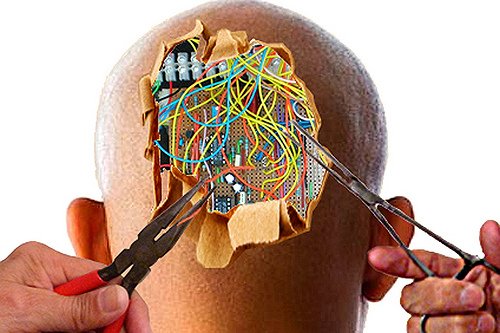In our last article we explored a major business trend: the need to reinvent and change traditional or legacy business operating models in order for such established businesses to leverage their resources and experience to compete in the digital age. Lets explore more, why this is not difficult to understand, but difficult to achieve, and why coaching for change is critical.
Why so hard? Why can’t I just read books, attend seminars and workshops, study great MBAs, choose the best consultant or mentor (and I have personally done all four!), and create a new ‘me’, a new organization, which is wildly successful in a new reality? One answer is purely biological. Resistance to change is in our genetic programming and instincts: we are hard-wired to survive as humans. This is also called our instinctual intelligence, and it lives in our body, not in our mind. Basically humans survive by fight, flight or freeze. Not by re-inventing themselves – at least not in the moment of threat (watch the animated movie The Croods – it is more fun than reading my words…). True and sustainable human change and individual development tend to take a little longer than a moment of threat.
Here is the good news. Change does not need to be left to serious and real threat to our existence, or to chance, or wishful thinking, or distractive numbing (insert your favorite distraction here….). Humans are able to deliberately rewire their thinking, their habits, how they speak and act, even how they work with their feelings and of course, with one another. In other words – instinctual intelligence can be grown, stretched and (re-)learned. Today, we have lots of hard evidence and science to show this – neuroscience to be exact, especially around neural plasticity and instinctual intelligence (Google these terms for evidence).
In the same way, the odds of enterprise lean transformation (replace with your favorite change terminology here…) programs succeeding sustainably can be considerably improved – by preparing and working with the people, the leaders, who engage with and drive the new change and innovation processes. It is estimated that around 4/5ths of these huge programs ultimately fail to deliver value, with most destroying value. These are not good odds! This is not a defendable investment.
What are we missing here? How do successful corporate transformations differ from the failures? There is research into this, of course, but not so much in the public space, because, I suppose, it is not attractive to talk about our failures! My view and experience is that the problem does not lie with the lean transformation methodology. Lean, and Agile, and many other entrepreneurial operating systems work very well – look at the many successful, new digital giants, who use these operating systems! What I am seeing is that processes, however smart, need to be driven with passion and competence by people, who have the mindset to enjoy doing so. In this sense, entrepreneurial mindset is a key competence. But this is not how traditional or legacy businesses, and the people within them, think, never mind act. They have grown big and successful through protecting themselves, through focusing on what they know and controlling everything, from operations to people to finances and risk, tightly. That worked in the industrial age. Today, these businesses are realizing, sometimes painfully, that they are losing market share, and nothing they have tried is changing this. It seems like the required change is not so accessible after all.
When I coach individual executive clients, this is what I help them achieve – nothing less. They build their self-awareness to ask the tough questions, mainly of themselves. This allows them insight into their mindset. Then they change how they think, speak and act. Actions lead to results, and they get the results they want. Sounds simple.
So… here is the ‘but’ you have been waiting for… it takes a healthy level of courage, creativity and energy, learning new (or forgotten) competencies, and lots of support. Just because this process sounds simple, does not mean it is easy, and it certainly takes some time. This is what I do as professional coach. Executive Coaching is your gift that you give yourself. And as my clients reinvent themselves, the new competencies keeps revealing themselves as new gifts, visible to all, and inspiring colleagues around them. Too good to be true? Ask one of my clients….
How is this translated back to corporate transformation? In my experience, the process is identical. The difference between an individual person and a large multi-national corporation is complexity. And yet the similarity between the individual human being and an organization is also complexity. In the next article we will explore how to work with complexity in an environment of change.
What are your thoughts and experiences so far?

